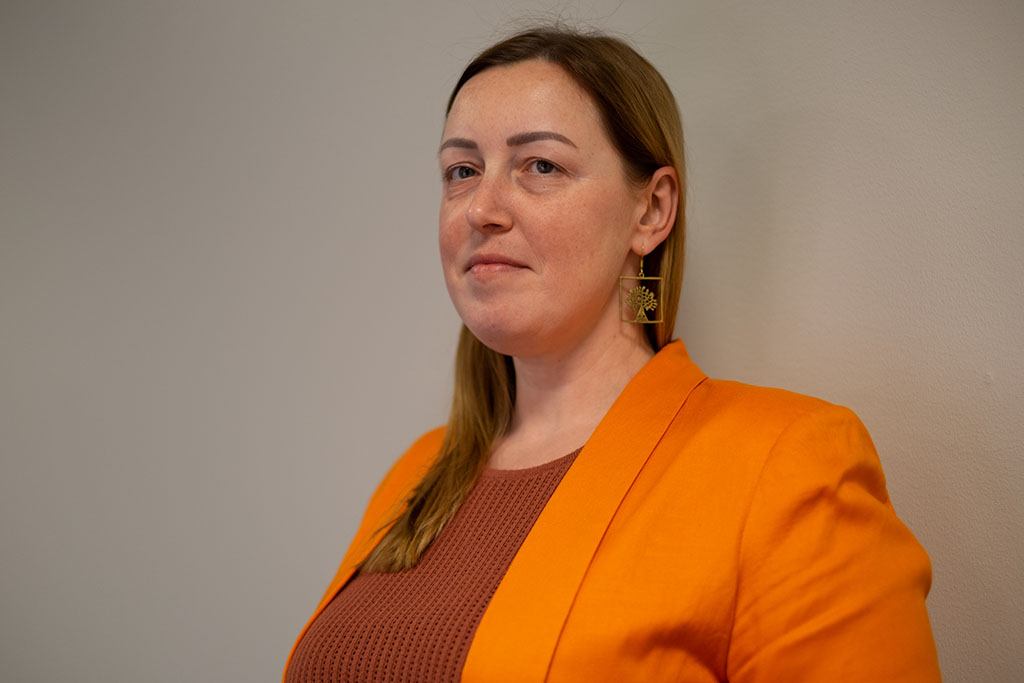Making sure Ukrainian women get the right help
Many volunteers are coming together to support internally displaced women in Ukraine. Mediators and Dialogue Facilitators Community of Practice have activated their mobile teams of mediators and psychologists across the country to make sure people are trained and able to provide the right help.

Since Russia’s full-scale invasion in February last year, thousands of people in Ukraine have been forced to flee their homes. Even though many have left the country, the majority have fled to other parts of Ukraine. This started already in 2014, when Russia first invaded Ukraine and among others annexed the Crimean Peninsula, but the number of internally displaced people (IDPs) have increased alarmingly fast during 2022.
“The majority of the internally displaced people are women, especially women with children,” says Natalia Bezkhlibna, mediator and coordinator of the mobile Teams project in Ukraine .
People have opened their homes to welcome refugees, but it has been overwhelming for both IDPs and the communities hosting them. Without the right skillset, the situation becomes even more difficult. The mobile teams of mediators and psychologists have also been working to educate and provide volunteers with the tools needed to take care of people experiencing war and trauma.
“As we say in our project ‘There is a need, but no request’. Millions of people are traumatised and stressed and don’t have the resources to reflect that there is a need, or they aren’t able to formulate a request for satisfying the need and communicate it to anyone,” says Natalia.
Emergency funds to mobile teams
Mediators and Dialogue Facilitators Community of Practice is a community of experts in mediation and dialogue. After the invasion, their focus has been to work with the conflicts and tensions caused by the internal migration within Ukraine due to the war and launched their project of Mobile teams in the spring of 2022.
With the support of The Kvinna till Kvinna Foundation’s emergency fund, they have been able to train their mobile teams on upgrading their facilitation skills for leading group discussions. These teams are active in four cities in western Ukraine—Lviv, Chernivtsi, Ivano-Frankivsk and Ternopil—supporting internally displaced women by providing psychological support, helping to resolve conflicts and organising community-based facilitations.
“It has been extremely valuable,” says Natalia. “Not least because mediators and psychologists who have been working on the ground for months are themselves in need of rehabilitation.”
Providing comfort and preventing conflict
The mobile teams are present where there are locals receiving IDPs such as in shelters, humanitarian hubs, administration, libraries and organisations—including those who work with refugees. The teams provide psychological support groups for experience exchange, individual consultations, education and facilitate discussions on rules for living together.
“The main goal of the groups is to identify needs and to fulfil those, as well as understand in which way we can help a person or a group. Sometimes people just need to have a time and a place to discuss how they are, what they are feeling, and to reflect on the emotional situation of their work,” Natalia says.
Going forward, psychologist Iryna Eihelson, who is part of the Mediators and Dialogue Facilitators Community, hopes that the organisation can further expand trainings on social services and provide counselling on societal level. They are trying to develop new methods as they move about the reality of a society at war.
“We see the need to scale up our work, especially outside of the big cities. We also need to zoom in on specific needs for women,” says Iryna.
Time is crucial
For the Mediators and Dialogue Facilitators Community time is crucial, even more so when the lines between emergency response and recovery response have been blurred.
“The approach that The Kvinna till Kvinna Foundation uses for the emergency fund has been really appreciated. It has given us the possibility to use the resources in a more effective way, without the unnecessary bureaucracy, especially when it has been very important for us to be as flexible and quick as possible,” Natalia says.
Kvinna till Kvinna has supported women’s rights in Ukraine since 2014. When Russia’s full-scale invasion began in 2022, Kvinna till Kvinna activated our emergency fund to provide urgent support to women’s rights organisations and individual women human rights defenders in and from Ukraine in their work to help women exposed to violence, displaced women and families in need of immediate support. Learn more about our work in Ukraine »